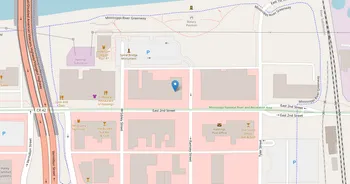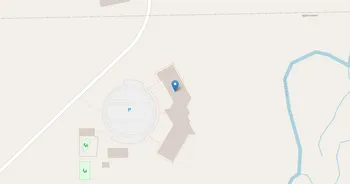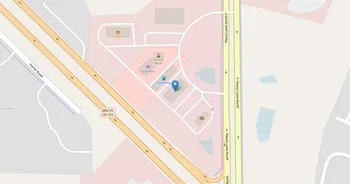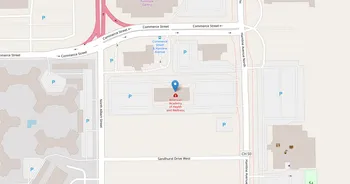Leech Lake Tribal College (LLTC) : Overview, Courses, Scholarships & Rankings
About Leech Lake Tribal College
Set among pine forests and clear water in northern Minnesota, Leech Lake Tribal College is rooted in Ojibwe values and community. The college is known for supportive, close-knit classes and hands-on learning that ties coursework to place. Students build strong foundations across the arts and sciences, with noted strengths in culturally grounded study, land and environmental themes, and writing, math, and technology. Classrooms and labs sit alongside outdoor learning areas, and Ojibwe language and tradition are visible in daily life.
Campus life feels welcoming and practical. You'll find a student-centered library, computer access, tutoring and advising, and cultural programs that bring people together. Clubs, service projects, and community gatherings add momentum, while nearby lakes and trails invite canoeing, fishing, and winter adventures. Career preparation is woven throughout, with internships and connections to tribal programs, regional schools, healthcare, and natural resource offices. It's a small campus with a strong sense of place.
Key Institutional Details
Contact & Profile
Academic & Institutional
Academic Programs & Fields of Study
Leech Lake Tribal College (LLTC) offers 8 degree programs across 7 major academic fields, graduating approximately 42 students annually. The most popular fields by graduate volume are Construction (2 programs, 12 graduates), Liberal Arts (1 programs, 10 graduates), Security & Safety (1 programs, 6 graduates), Education (1 programs, 5 graduates) and Business (1 programs, 4 graduates). Explore program details, award levels, and graduate demographics below.
Construction (2 programs, 12 graduates)
Building Trades, Construction Management and Skilled Crafts
| Program Name | Graduates | Gender Distribution | Award Levels | CIP Code |
|---|---|---|---|---|
| Electrician | 7 |
|
Associate's
|
46.0302 |
| Carpentry | 5 |
|
Certificate (1-2 yrs)
|
46.0201 |
Liberal Arts (1 programs, 10 graduates)
Liberal Arts Education, General Studies and Humanities
| Program Name | Graduates | Gender Distribution | Award Levels | CIP Code |
|---|---|---|---|---|
| Liberal Arts and Sciences | 10 |
|
Associate's
|
24.0101 |
Security & Safety (1 programs, 6 graduates)
Emergency Management, Law Enforcement and Public Safety
| Program Name | Graduates | Gender Distribution | Award Levels | CIP Code |
|---|---|---|---|---|
| Criminal Justice and Police Science | 6 |
|
Associate's
|
43.0107 |
Education (1 programs, 5 graduates)
Educational Sciences, Teaching Methods and Pedagogy
| Program Name | Graduates | Gender Distribution | Award Levels | CIP Code |
|---|---|---|---|---|
| Early Childhood Education | 5 |
|
Associate's
|
13.1210 |
Business (1 programs, 4 graduates)
Business Administration, Marketing and Entrepreneurship
| Program Name | Graduates | Gender Distribution | Award Levels | CIP Code |
|---|---|---|---|---|
| Business Administration and Management | 4 |
|
Associate's
|
52.0201 |
Natural Resources (1 programs, 3 graduates)
Environmental Science and Natural Resource Management
| Program Name | Graduates | Gender Distribution | Award Levels | CIP Code |
|---|---|---|---|---|
| Environmental Science | 3 |
|
Associate's
|
03.0104 |
Cultural Studies (1 programs, 2 graduates)
Cultural Anthropology, Ethnic Studies and Social Group Research
| Program Name | Graduates | Gender Distribution | Award Levels | CIP Code |
|---|---|---|---|---|
| American Indian and Native American Studies | 2 |
|
Associate's
|
05.0202 |
Tuition, Fees & Estimated Costs
Overview of tuition rates, housing, and other annual education expenses for undergraduate and graduate students
Financial Aid & Student Support
Summary of scholarships, grants, student loans, and financial aid statistics for undergraduate students
Student Success Metrics
Graduation rates and post-graduation earnings to help assess student outcomes and long-term value of education.
Loan Burden & Repayment Outcomes
Breakdown of loan repayment rates and student debt levels by income and dependency status.
Frequently Asked Questions
Find answers to the most common questions about Leech Lake Tribal College (LLTC)
How much does it cost to attend Leech Lake Tribal College (LLTC)?
The annual tuition at Leech Lake Tribal College (LLTC) is $4,148 for in-state students. When including room and board, books, and other expenses, the total estimated cost is approximately $5,708 for in-state students. Additional costs include room and board $8,500 (off-campus) and books and supplies $1,560.
Data based on IPEDS program completions for 2022-2023 academic year. Tuition and cost estimates are approximate and may not include all fees, personal expenses, or transportation costs.
What academic programs and degree levels does Leech Lake Tribal College offer?
Leech Lake Tribal College (LLTC) offers 8 academic programs across 7 major fields of study, with available degree levels: Certificate (1-2 yrs), Associate's.
Most popular program areas include:
- Building Trades, Construction Management and Skilled Crafts (2 programs)
- Liberal Arts Education, General Studies and Humanities (1 programs)
- Emergency Management, Law Enforcement and Public Safety (1 programs)
- Educational Sciences, Teaching Methods and Pedagogy (1 programs)
- Business Administration, Marketing and Entrepreneurship (1 programs)
Data based on IPEDS program completions for 2023-2024 academic year. Numbers reflect programs where students graduated, not all offered programs.
What financial aid and scholarships are available at Leech Lake Tribal College?
Leech Lake Tribal College (LLTC) provides financial aid to 18% of first-time, full-time students, with average grants of $4,453 and average loans of $0.
Average financial aid amounts by type:
- Pell grants: $3,466
- State/Local grants: $541
- Institutional grants: $1,418
The university supports 26 students with grants and 0 students with loans annually.
Data based on IPEDS for 2022-2023 academic year. Financial aid amounts and percentages may vary by program, enrollment status, and individual circumstances.
What is the average salary for Leech Lake Tribal College graduates?
Leech Lake Tribal College (LLTC) graduates earn a median salary of $24,734 after 6 years.
Data based on IPEDS for 2022-2023 academic year. Salary data reflects graduates who received federal financial aid (approximately 60% of all graduates). Actual earnings may vary significantly based on program, location, and individual circumstances.
Related Universities




Found something useful? Help others discover it too! Share with friends, on social media, or save for later - every share helps someone find the information they need.